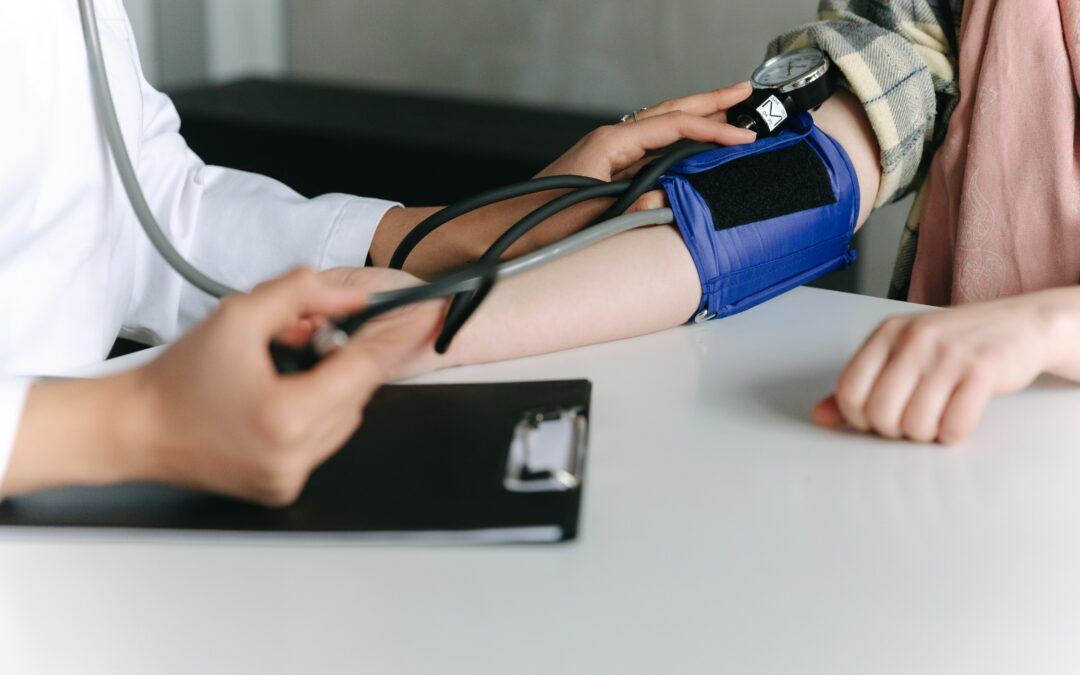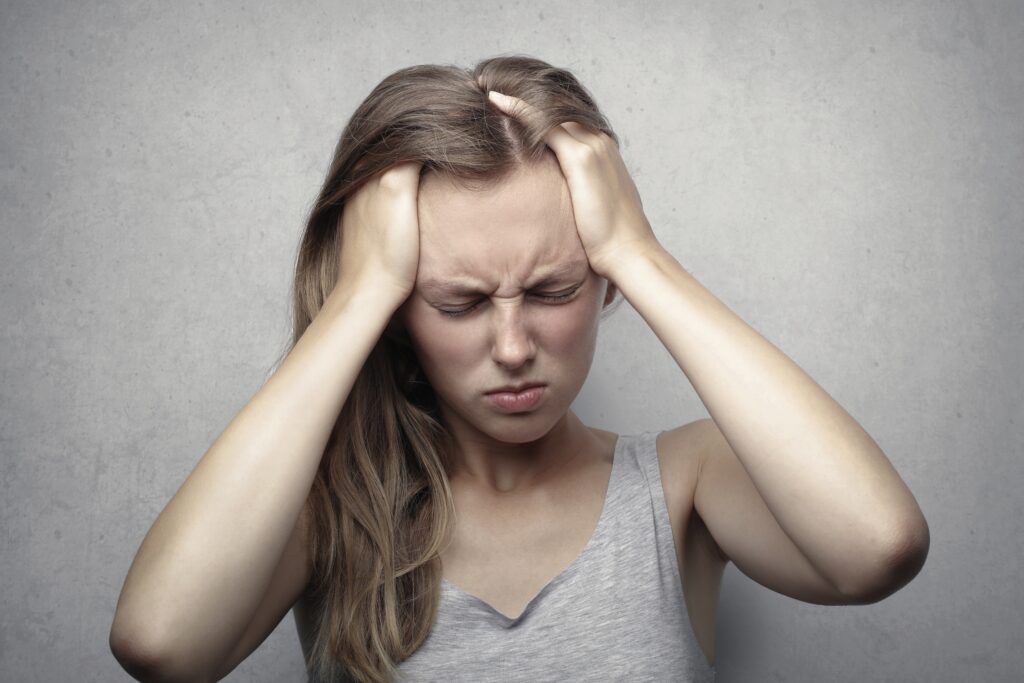
Did you know that 47% of adults in the USA have hypertension, or high blood pressure?
High blood pressure is diagnosed when your systolic blood pressure is above 130mmHg, or your diastolic blood pressure is above 80mmHg, or you’re already taking medication to manage your high blood pressure.
Globally, it’s estimated that 26% of our world’s population have high blood pressure, and it’s estimated to increase to 29% by 2025.
What’s the big deal about this?
High blood pressure is attributed to 7.6 million deaths each year, and 54% of people who have had a stroke and 47% of people who have had a heart attack also have high blood pressure. Many people aren’t aware that they have high blood pressure, or they’re ignoring the signs of high blood pressure.
What is blood pressure?
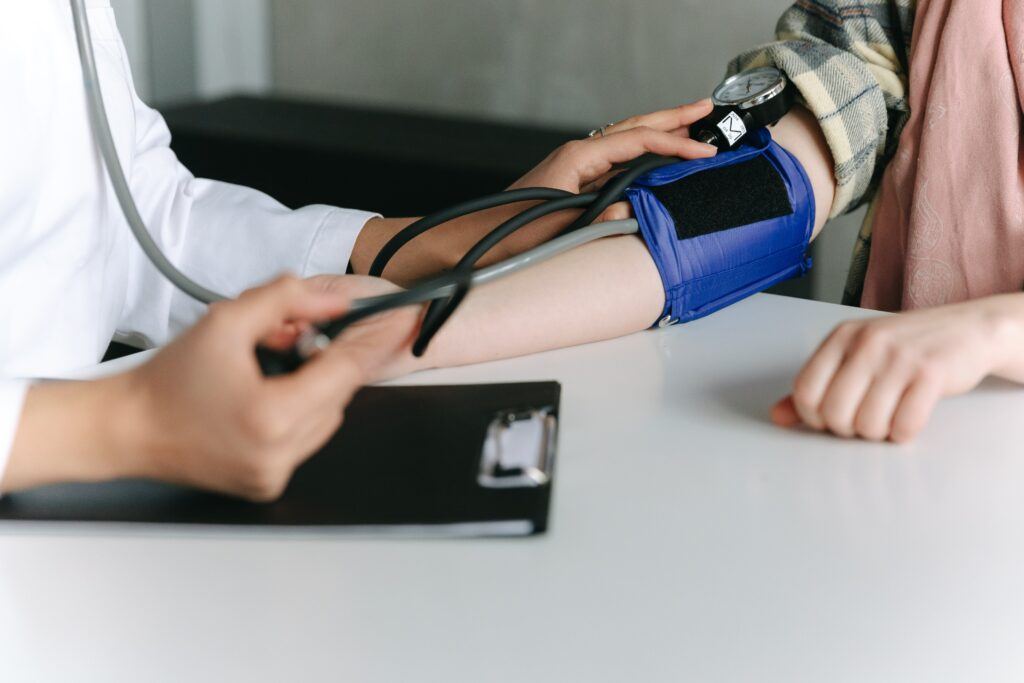
Blood pressure is a measure of the amount of blood that’s pumped by your heart into the space in your arteries for your blood to flow through it. This is referred to as the amount of resistance. Systolic pressure measures the pressure when your heart beats. Diastolic pressure is a measure of the force in your arteries in between beats.
Most people with high blood pressure don’t have any noticeable symptoms, and it’s a complete surprise when high blood pressure is revealed during a routine check-up.
Some people do experience symptoms such as headaches, nosebleeds, red face or dizziness. It’s important that if you’re measuring your own blood pressure, you use a cuff that fits correctly. Too-small cuff can give an inaccurate reading and make it appear higher than what your blood pressure is.
stress levels and your blood pressure

Did you know that how you feel can have an impact on your blood pressure? Researchers have found a correlation between your stress levels and your blood pressure.
Moments of stress increase your blood pressure, and that’s normal. Once the stress has passed, your body returns to its normal state and your blood pressure goes down.
But if you’re dealing with high levels of stress that has been going on for quite some time, your blood pressure is going to increase over the long term. This is because of the cortisol-fueled surge that comes with our body’s fight or flight response to stress.
Long-term stress encourages your body to adapt to this new norm by releasing large amounts of vaso-constricting hormones that also increase blood pressure.
Couple that with how we tend to look after our bodies when we’re stressed with lots of fat, sugar, and caffeine to supposedly sustain us and increase our energy. Now we’re looking at a range of things together, which even on their own can increase our blood pressure.
Sleep and blood pressure

Sleep is a vital healing and restorative process that can repair the damage done during the day by having high blood pressure, but the recovery happens in stage three of your sleep. This is before REM sleep, and if stress is disturbing your sleep pattern, it becomes harder for the body to repair.
Research has also found that anger increases systolic pressure and anxiety increases diastolic pressure. Being happy can reduce your systolic blood pressure. There’s a strong connection between how we feel and how that shows up in our blood pressure.
What can you do if you have high blood pressure? Well, the good news is that you have a variety of resources at your fingertips.
Habit of breathing

Start by getting into the habit of breathing deeply. Breathe all the way into the bottom of your lungs.
When we’re stressed, we tend to shallow breathe. Shallow breathing is also known as thoracic breathing or chest breathing.
That’s when we subconsciously shortcut the effort of breathing by using our intercostal muscles rather than our diaphragm to breathe. It makes us feel anxious. It increases our risk of developing cardiovascular disease or respiratory conditions and it’s largely habitual.

You can retrain your body by lying on the floor with your hands on either side of your diaphragm, across your tummy. Check that your fingers are touching in the centre of your abdomen.
As you breathe in for a count of seven, notice that your fingers are moving apart. Hold your breath for a count of three and then breathe out for a count of ten.
As you’re doing this, watch your fingers move back together as you breathe out. Hold for another count of three on that outbreath and then repeat. Breathe in for seven, hold for three, and out for a count of ten. Hold for a count of three and repeat. Do this 3 times.
When you’re out and about during the day, simply breathe in deeply using your diaphragm. Set an alarm on your phone to remind you to take a moment to breathe deeply and calmly if you need to.
Dehydration increases blood pressure
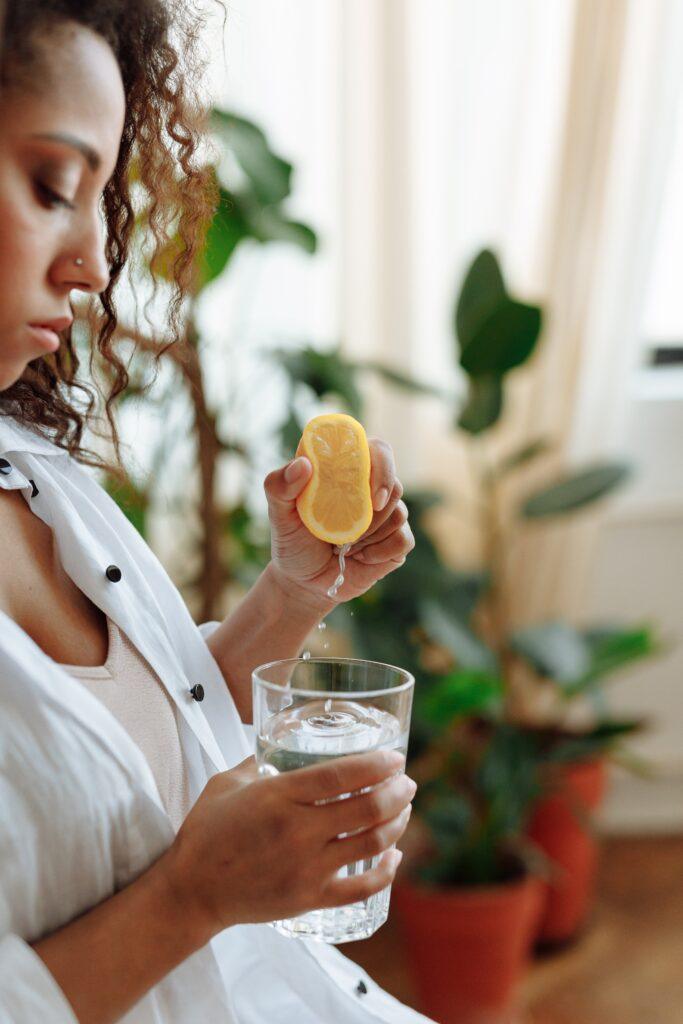
Why does drinking water matter? When you’re dehydrated, your blood becomes thicker, because there’s less fluid around.
Your body has a multitude of self-correcting tools. In this case, your kidneys will release renin and as a result, you retain water to correct your blood’s viscosity.
If this is a constant thing, over time, that can change your sodium potassium balance, and this will increase your blood pressure.
Dehydration also triggers the release of vasopressin, and one of the many things that vasopressin does is reduce the amount of water that’s excreted by your kidneys. Instead, it reabsorbs it. This is why it’s known as an antidiuretic hormone.
If you’re on medication for high blood pressure, one of those drugs is likely to be a diuretic. It means you pass more urine as a result, so you want to ensure that you’re staying hydrated.
healthy eating
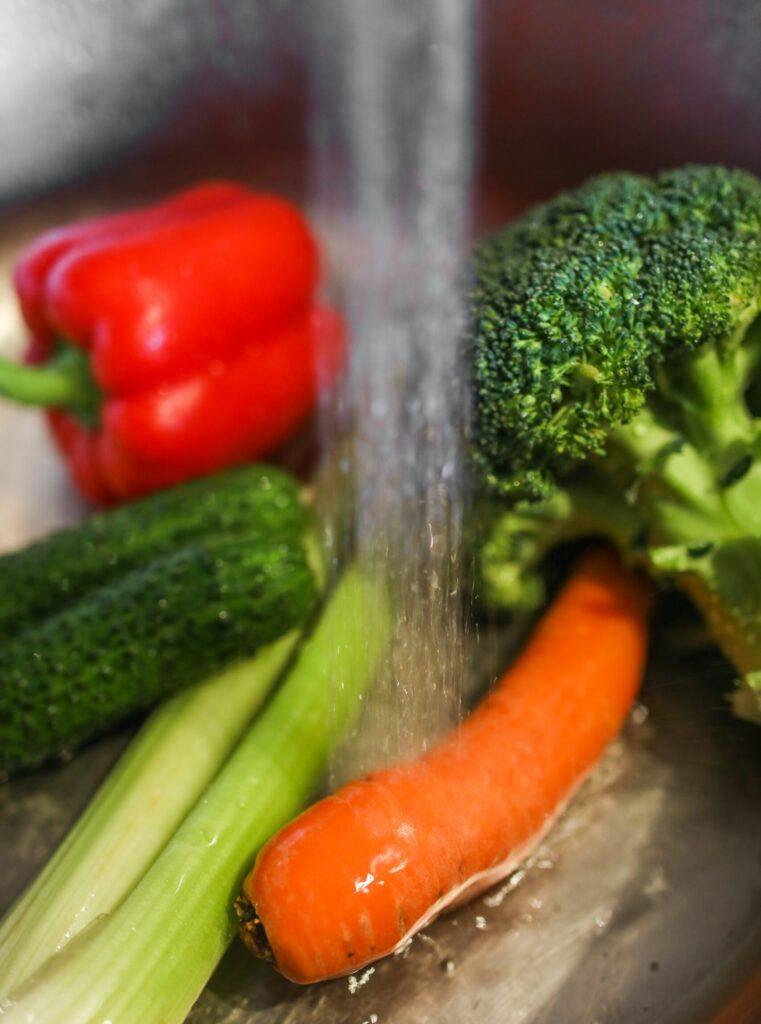
Foods such as celery and dandelion leaves are also diuretics. Eating lots of green things and moving your body also play an important role, as do mindfulness practices such as meditation, or the nurturing styles of yoga or tai chi.
Find activities that get you in the zone like gardening, colouring in or baking bread.
Most people will have high blood pressure for years before it’s diagnosed. Get your blood pressure measured today so you know whether this is something you’re unknowingly already dealing with.
how to lower blood pressure naturally
There are a wide variety of things you can do to lower your blood pressure. Medication is just one option among a wide variety of effective management mechanisms.
Pay attention to your habitual emotional state. If you find anger or frustration your go-to, work with a professional to modify that habitual response.
- Breathe deeply and calmly.
- Stay hydrated.
- Eat a wide variety of foods that are low in sugar and unhelpful fats.
- Have some fun.
- Move your body.
Most importantly, remain aware of what triggers the changes in your body.

